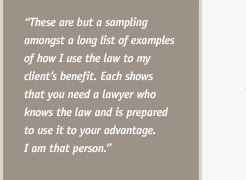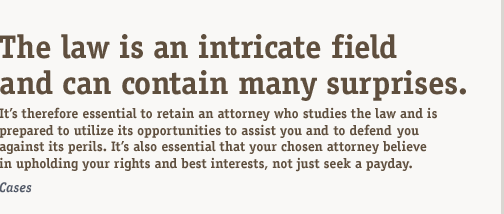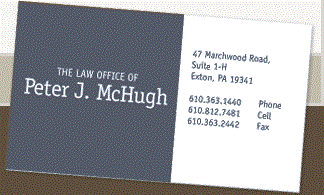








- Unclear laws can be resolved in your favor.
- Laws can be flexible in favorable ways you may not expect.
- Even when a case seems hopeless, the laws can still lead you to victory.
Unclear laws can be resolved in your favor.
I once argued a case where the Pennsylvania Department of Transportation had argued that it was not legally required to comply with expungement court orders regarding its possession of DUI records of people who were admitted into ARD, a rehabilitative program for first-time offenders. My client and all others similarly situated, had bargained for an expungement and clean start when they chose the ARD program but were not getting it in return from the government as promised. I felt this was an injustice not only for my client but the people’s rights generally.
I studied all the applicable constitutions, laws and court cases on the subject. I was then able to tie each code together into "the big picture" to demonstrate that the law required the Department to expunge its records. By careful review and synthesis of all the laws and cases, I prevailed in court and both the trial and appellate court agreed with me and ordered the Department to expunge the records, setting the statewide precedent decision that the Department does so. The case is called Commonwealth v. M.M.M., and you can review the court’s decision here:
http://www.courts.state.pa.us/OpPosting/Superior/out/a10045_01.PDF
Laws can be flexible in favorable ways you may not expect.
I once argued a zoning case where the landowners, who lived on land zoned as agricultural, wanted to set up a horse arena plus a dog kennel on their land. Opponents of their plans believed that those activities were business activities rather than agricultural and wanted to stop them from using their land for those uses. By utilizing laws and court cases and synthesizing them, I was able to demonstrate that such activities also constitute agricultural uses and thus should be permitted uses on the land. The zoning board agreed.
Even when a case seems hopeless, the laws can still lead you to victory.
I once defended a person charged with driving while suspended who faced prison time as a multiple offender. My client was stopped on the road and the officer who stopped him discovered his driver’s license was suspended. The charge seems simple enough to prove. However, the law must be followed. Despite the apparent "dead duck" scenario, the client was found not guilty at trial because I recognized an error in how the prosecution presented its evidence. The law’s technical requirements matter too and can lead you to victory.
 |
 |
|
 | ||
|
||